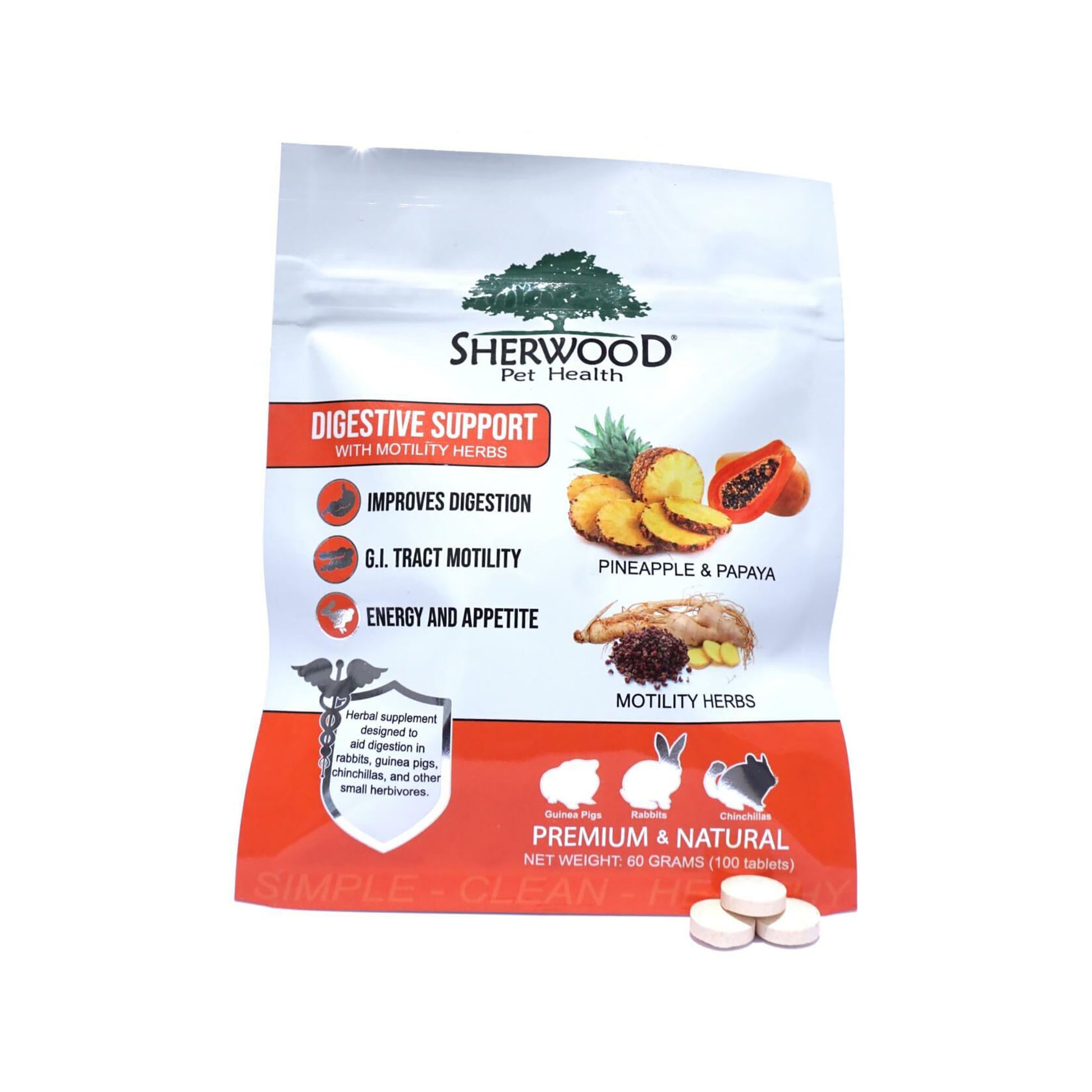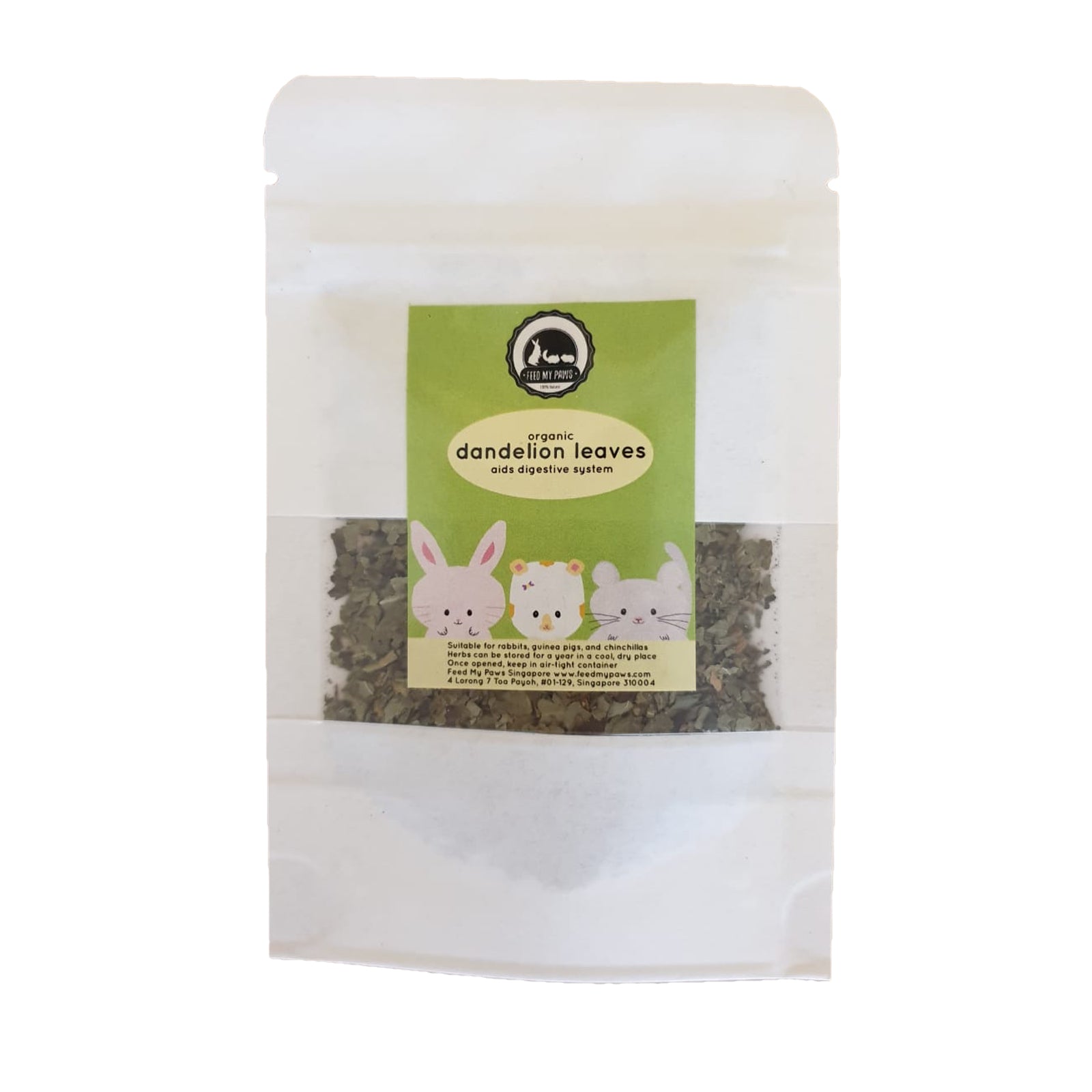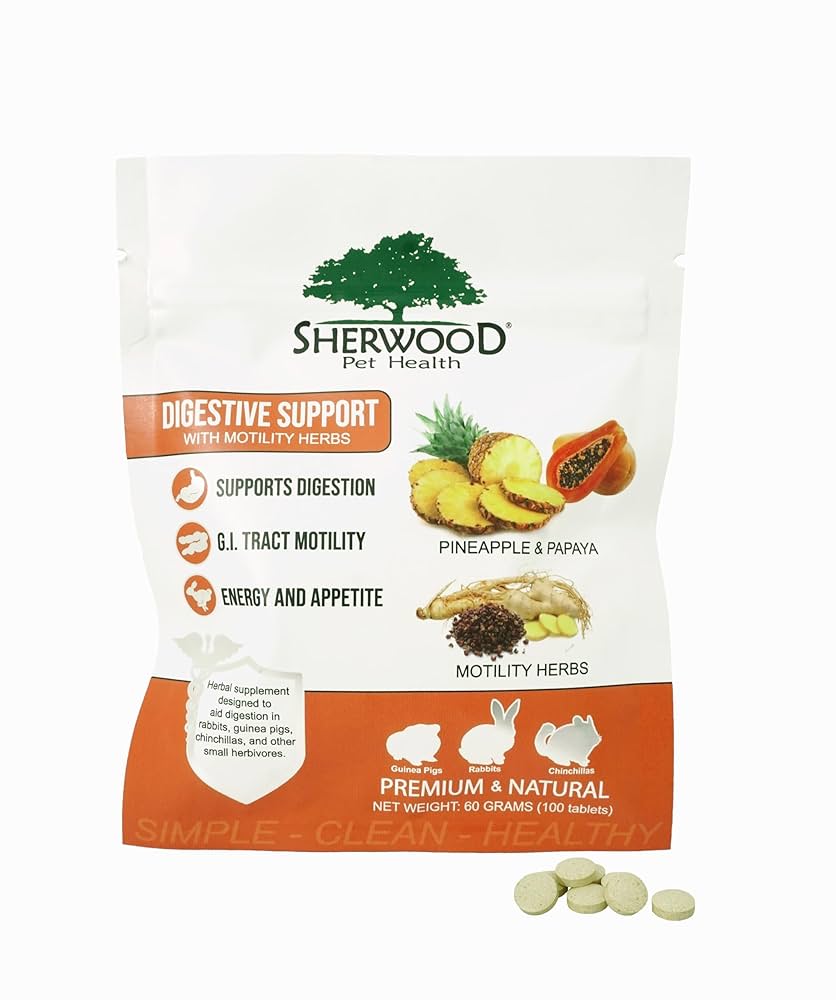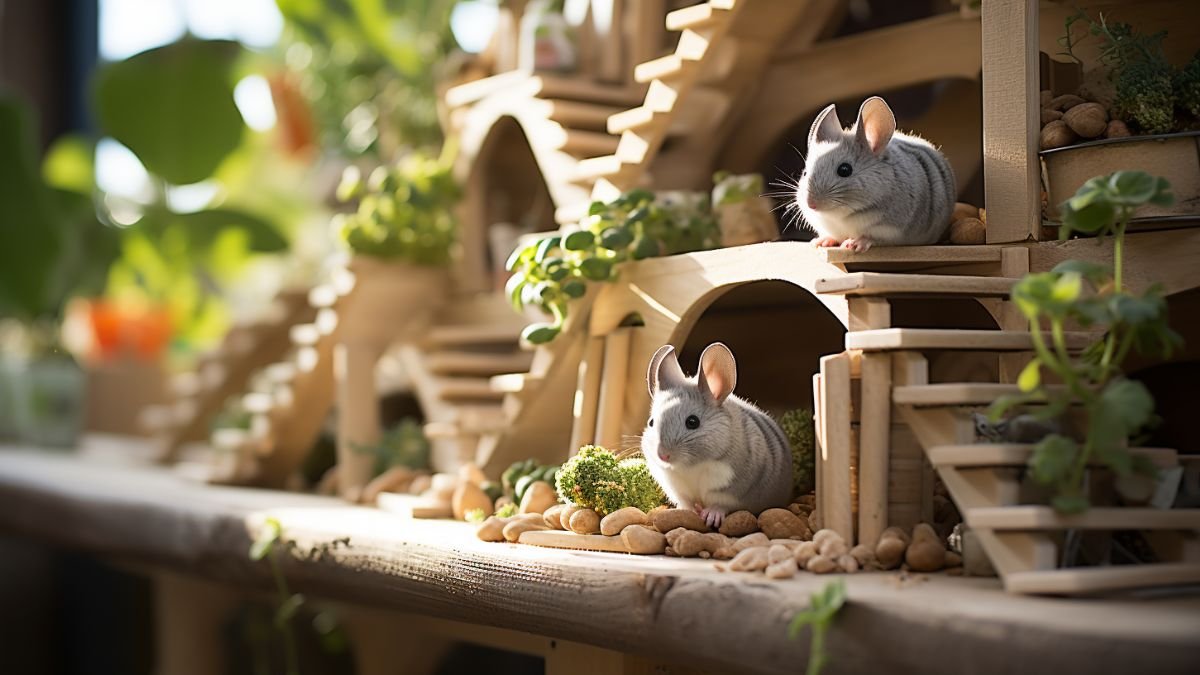
If you have a chinchilla, you know how important their digestion is for their overall health and happiness. But did you know that certain herbs can help support your chinchilla’s digestive system naturally?
Using the right herbs can make a big difference in keeping your furry friend comfortable and energetic. You’ll discover which herbs work best and how to use them safely. Keep reading to learn how to give your chinchilla the digestive support it deserves.

Chinchilla Digestive System Basics
Chinchillas have a unique digestive system designed for a high-fiber diet. Their stomachs are simple, but their intestines are long to help break down tough plant material. They rely on a special process called hindgut fermentation to digest food.
This process happens in the cecum, a large pouch in their intestines. Good bacteria live there to help break down fiber. This makes chinchillas very good at extracting nutrients from hay and leafy greens.
Importance Of Fiber In Chinchilla Diet
Fiber is the key to healthy digestion in chinchillas. It keeps food moving through their system smoothly. Without enough fiber, chinchillas may suffer from digestive problems like bloating or diarrhea.
Hay is the best source of fiber for chinchillas. It helps wear down their teeth and supports gut health at the same time.
Role Of Gut Bacteria
Gut bacteria play a major role in chinchilla digestion. They break down fiber into usable energy. A balanced gut flora helps prevent digestive upset and supports overall health.
Changes in diet or stress can harm gut bacteria. This may lead to serious digestive issues.
Signs Of Digestive Problems
Watch for signs like loss of appetite, diarrhea, or bloating. These may indicate digestive trouble. Early detection can help avoid severe health problems.
Regular check-ups and a proper diet keep chinchilla digestion in good shape.
Signs Of Digestive Issues
Chinchillas have delicate digestive systems. Signs of digestive issues can appear quickly and need attention. Knowing these signs helps keep your pet healthy and happy.
Changes In Eating Habits
Chinchillas with digestion problems may eat less or stop eating. They might avoid their usual food. Watch for sudden drops in appetite.
Abnormal Feces
Healthy chinchillas produce firm, dry droppings. Soft, wet, or very small droppings can signal trouble. Diarrhea is a serious sign that needs quick care.
Abdominal Discomfort
Your chinchilla may show pain by grinding teeth or hunching. They might avoid moving or seem restless. These signs suggest stomach pain or bloating.
Changes In Behavior
Digestive problems can make chinchillas less active or more irritable. They might hide more or seem weak. Behavior changes are important clues to their health.
Benefits Of Herbs For Digestion
Herbs can help chinchillas with digestion. They offer natural support without harsh chemicals. Herbs contain compounds that soothe the stomach and improve gut health. Regular use can prevent common digestive issues like bloating and gas.
Herbs also promote good bacteria in the intestines. This balance helps chinchillas absorb nutrients better. Some herbs reduce inflammation, calming sensitive digestive tracts. Feeding herbs carefully can keep your chinchilla happy and healthy.
Natural Soothing Effects
Many herbs calm the stomach lining. This reduces discomfort and helps food pass smoothly. Chamomile and peppermint are common examples. These herbs ease cramps and reduce nausea in chinchillas.
Improved Nutrient Absorption
Herbs can boost digestion by supporting enzyme production. This helps chinchillas break down food faster. Better digestion means more nutrients reach the body. Fennel and ginger are good choices to aid absorption.
Support For Healthy Gut Bacteria
Certain herbs encourage good bacteria growth in the gut. Healthy bacteria fight harmful germs and improve digestion. Dandelion and oregano help maintain this balance. This support strengthens the chinchilla’s immune system too.
Chamomile For Soothing Stomach
Chamomile is a gentle herb that helps calm chinchilla stomachs. It can reduce gas and ease digestion discomfort. This makes chamomile a good choice for chinchillas with sensitive tummies.
The herb has natural anti-inflammatory properties. These can soothe the lining of the digestive tract. Chamomile also helps relax the muscles in the stomach, reducing cramps.
How Chamomile Works For Digestion
Chamomile contains compounds that lower stomach acid. It stops irritation and helps food move smoothly through the gut. This prevents bloating and upset stomach in chinchillas.
Safe Ways To Give Chamomile
Chamomile can be given as a tea or dried herb. Make sure the tea is cooled before offering it. Use only small amounts to avoid any risks.
Signs Chamomile Can Help Your Chinchilla
Look for signs like gas, bloating, or soft stools. Chamomile may ease these problems. It supports overall digestive health and comfort for chinchillas.
Fennel To Reduce Bloating
Fennel is a gentle herb known to ease digestion in chinchillas. Its natural properties help reduce bloating and gas. This makes fennel a great choice for chinchillas with sensitive stomachs.
The herb contains compounds that relax the digestive tract. This can prevent discomfort and promote smooth digestion. Offering small amounts of fennel can support your chinchilla’s gut health safely.
What Makes Fennel Effective For Digestion?
Fennel seeds have oils that soothe the stomach lining. These oils also reduce inflammation and gas buildup. This helps chinchillas feel comfortable after eating.
How To Feed Fennel To Your Chinchilla
Use fresh or dried fennel leaves in tiny quantities. Sprinkle a pinch over their usual food once or twice a week. Avoid giving too much to prevent stomach upset.
Signs Fennel Helps Your Chinchilla
Look for less bloating and calmer behavior after meals. Your chinchilla should show more energy and comfort. If symptoms worsen, stop feeding fennel and consult a vet.
Peppermint For Digestive Comfort
Peppermint is a popular herb known for its soothing effects on digestion. It helps calm the stomach and eases discomfort. For chinchillas, peppermint can support healthy digestion and reduce bloating. Offering small amounts can be beneficial but must be done carefully.
Peppermint’s Role In Chinchilla Digestion
Peppermint contains natural oils that relax the muscles in the digestive tract. This relaxation helps food move smoothly through the stomach and intestines. It may prevent gas buildup and reduce stomach cramps in chinchillas.
Safe Use Of Peppermint For Chinchillas
Only give small, dried peppermint leaves as treats. Fresh peppermint can be too strong and cause stomach upset. Limit peppermint to a few times a week to avoid digestive issues. Always observe your chinchilla’s reaction after offering peppermint.
Signs Peppermint Is Helping
Look for improved appetite and normal droppings. Reduced signs of gas or bloating suggest peppermint is working well. If your chinchilla seems more relaxed after peppermint, it indicates digestive comfort.
Dandelion As A Natural Digestive Aid
Dandelion is a popular herb known for its natural benefits for chinchilla digestion. It contains vitamins and minerals that support healthy digestion. The herb also helps reduce stomach discomfort and improves nutrient absorption. Many chinchilla owners use dandelion to keep their pets’ digestive systems balanced and strong.
Dandelion works gently to stimulate the digestive tract. It encourages bile production, which aids in breaking down food. This process helps chinchillas digest their fibrous diet more efficiently. The herb also acts as a mild laxative, preventing constipation in chinchillas.
Dandelion’s Nutritional Benefits For Digestion
Dandelion is rich in fiber, vitamins A, C, and K. These nutrients support gut health and boost the immune system. The herb contains antioxidants that protect digestive cells from damage. It also provides minerals like potassium and calcium that help maintain overall health.
How Dandelion Supports Healthy Gut Flora
The herb promotes the growth of good bacteria in the intestines. Healthy gut flora improves digestion and nutrient absorption. Dandelion’s prebiotic properties feed beneficial microbes. This keeps the chinchilla’s digestive system balanced and reduces digestive problems.
Safe Ways To Feed Dandelion To Chinchillas
Fresh or dried dandelion leaves are safe for chinchillas in small amounts. Always introduce herbs slowly to avoid digestive upset. Avoid dandelions treated with pesticides or chemicals. Use organic sources or grow your own dandelions to ensure safety.

How To Safely Introduce Herbs
Introducing herbs to chinchilla diets needs care and attention. Herbs can help digestion but must be given correctly. Sudden changes can upset their sensitive stomachs. Start small and watch for any signs of trouble.
Choose Safe Herbs First
Pick herbs known to be safe for chinchillas. Examples include chamomile, peppermint, and dandelion leaves. Avoid herbs that may cause allergies or toxicity. Always research or ask a vet before offering new herbs.
Start With Small Amounts
Begin by giving a tiny pinch of herb. Observe your chinchilla for any changes in behavior or digestion. If no issues appear after a day, slowly increase the amount. Never rush the process or give large quantities at once.
Watch For Signs Of Discomfort
Look for symptoms like diarrhea, vomiting, or loss of appetite. If these happen, stop giving the herb immediately. Consult a vet if problems continue. Your chinchilla’s health is the priority.
Mix Herbs With Regular Food
Blend herbs with their usual hay or pellets. This helps chinchillas accept new tastes easily. Avoid mixing too many different herbs at once. Introduce one herb at a time to track reactions.
Herbs To Avoid For Chinchillas
Chinchillas have delicate digestive systems. Some herbs can harm them and cause serious health problems. Knowing which herbs to avoid is very important. This protects your pet from upset stomachs or worse.
Many herbs that are safe for humans or other pets can be toxic to chinchillas. Their bodies cannot handle strong oils or certain chemicals in some plants. Always choose herbs carefully to keep your chinchilla healthy.
Herbs With Strong Oils
Herbs like peppermint, oregano, and rosemary contain strong oils. These oils can irritate chinchilla stomachs. Avoid feeding these herbs as they may cause diarrhea or discomfort.
Herbs That Are Toxic
Some herbs are toxic to chinchillas. Examples include garlic, onion, and chives. Even small amounts can lead to poisoning. Keep these herbs far from your pet’s food.
Herbs That Cause Allergies
Certain herbs may trigger allergies in chinchillas. Basil, sage, and thyme sometimes cause skin or breathing problems. Watch for signs like itching or sneezing and stop feeding them immediately.
Herbs With High Fat Content
Some herbs have high fat content, like fennel seeds. Too much fat can upset chinchilla digestion. It may lead to weight gain or digestive upset. Offer these herbs only in very small amounts or avoid them altogether.

Frequently Asked Questions
What Herbs Help Improve Chinchilla Digestion?
Chamomile, peppermint, and fennel are gentle herbs that can aid chinchilla digestion naturally.
Can Parsley Support A Chinchilla’s Digestive Health?
Parsley provides fiber and vitamins that can help keep a chinchilla’s digestive system healthy.
Is Peppermint Safe For Chinchillas To Eat?
Yes, small amounts of peppermint can soothe chinchilla digestion and reduce stomach upset.
How Does Chamomile Benefit Chinchilla Digestion?
Chamomile calms the digestive tract and may reduce gas or bloating in chinchillas.
Can Fennel Seeds Aid Chinchilla Digestion?
Fennel seeds help reduce gas and improve digestion in chinchillas when given sparingly.
Are Dandelion Leaves Good For Chinchilla Digestion?
Dandelion leaves offer fiber and nutrients that support healthy digestion in chinchillas.
Should I Avoid Certain Herbs For Chinchilla Digestion?
Avoid herbs like onion or garlic as they can harm chinchilla digestion and health.
How To Introduce Herbs Safely To Chinchilla Diet?
Start with small amounts of fresh, clean herbs and watch for any digestive changes.
Conclusion
Herbs can gently help chinchilla digestion stay healthy. Chamomile, fennel, and peppermint are good choices. These herbs soothe the stomach and reduce gas. Always introduce herbs slowly to avoid upset. Fresh water and a balanced diet remain key. Watch your chinchilla’s reaction to any new herb.
A happy tummy means a happy chinchilla. Care and attention make all the difference. Simple herbs can support your pet’s well-being daily. Keep learning and caring for your furry friend.








